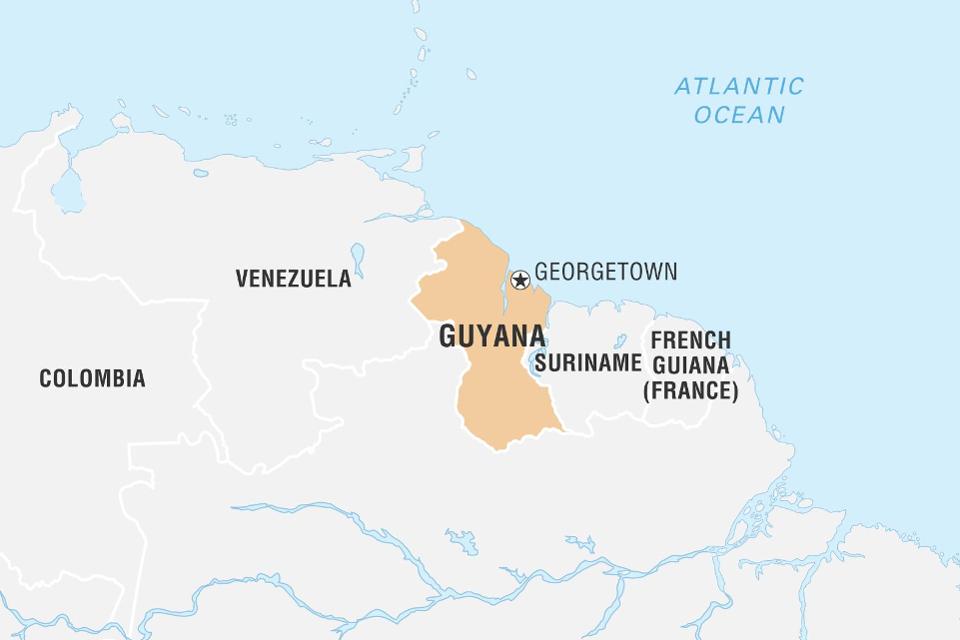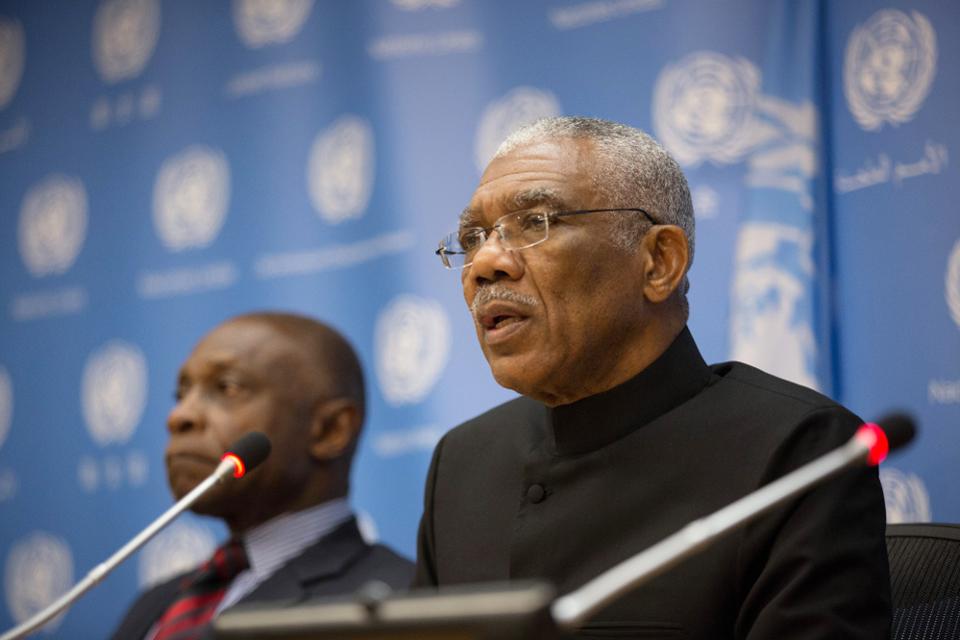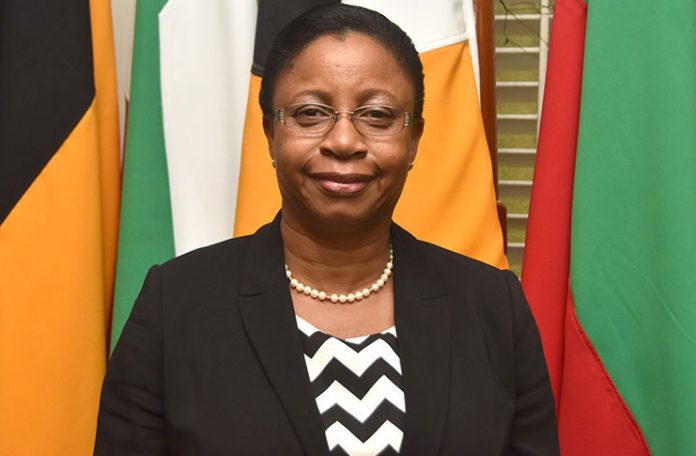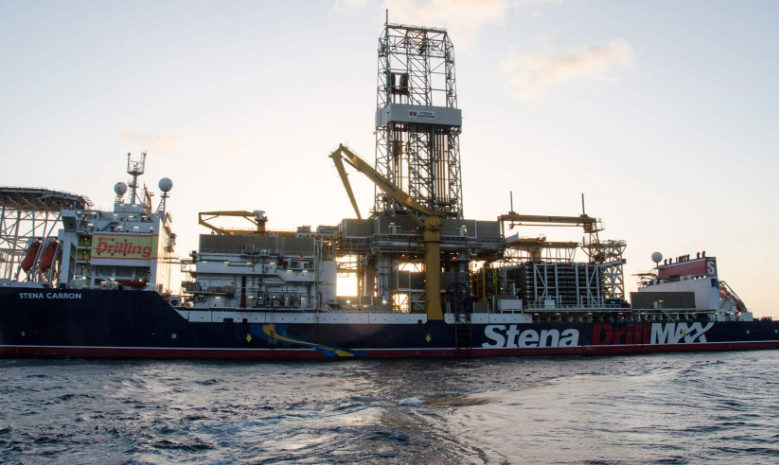(Forbes, 5.Feb.2020) — As ExxonMobil kicks off production on the world’s largest emerging oil projects, debate has intensified over the terms of contracts signed between the global oil giant and Guyana, the small impoverished South American nation that owns the offshore crude.
Oil contracts are already the central issue in Guyana’s presidential election, which comes to a head in March, with some members of the country’s opposition party calling for changes to contract terms and administration.
Now a new report by London-based NGO Global Witness and Open Oil weighs in, making the case that Exxon won itself a sweet deal from an underdeveloped country, inexperienced with high-dollar bargaining.
“This is a story about how an aggressive company negotiated an exploitative deal,” reads the February 3rd report.
The government of Guyana, in a statement the same day, called the report “a cunning and calculated attack on a soveriegn state with a duly elected government mere weeks before an election… it appears as though it is seeking to influence the electoral outcome.”
The March 2 election comes thanks to a 2018 vote of no confidence in the government of president David Granger and it largely seen as a referendum on the terms of the Exxon contract. If voters again reject the Granger government, that could mean a headache for the world’s largest publicly traded oil company, which hopes to make its Guyanese discoveries one of the crown jewel of its production portfolio.
Analytics firm Rystad Energy predicts 1.2 million barrels of lucrative light crude oil per day from Guyana’s offshore fields by this decade’s end. Compare that with 3.8 million oil-equivalent barrels per day of both crude and natural gas from Exxon’s entire portfolio in 2018.

It’s a tremendous trove of wealth for the isolated country of less than 800,000 people and a 2017 per capita GDP of $4,725.
“The public’s expectations on the oil bonanza are huge and are unlikely to be met in the opening months,” says James Bosworth, a risk consultant and author of the Latin America Risk Report newsletter. “If voters feel the country is not improving, Granger is out and Exxon’s contracts will be in trouble.”
Opposition candidate Ifraan Ali has pledged to keep the country’s Exxon contract intact, overruling more radical voices in his party, but has called for “better administration” of the contract terms. He has also said that contracts signed after Exxon, such as one awarded to London-based Tullow Oil, should be renegotiated since they were signed during a later period of less risk for drillers.
These such contract terms represent a classic debate for poorly developed countries selling natural resources to giant corporations, and for Guyana the conversation is already years old.
In 2018 the International Monetary Fund issued a warning, reported by Bloomberg, that “Existing production sharing agreements appear to enjoy royalty rates well below of what is observed internationally” and “are relatively favorable to investors by international standards.”
According to the report by Global Witness, Exxon will pay $1 million per year to lease the 10,350-square-mile Stabroek Block, the deepwater oil play estimated to hold more than 8 billion recoverable barrels, and will pay $600,000 per year to promote employment, training, and environmental and social protections. It also paid an $18 million signing bonus.
Guyana will also take 52 percent of revenue from recovered resources, which the IMF in 2018 compared with an average take of about 73 percent for other underdeveloped countries in similar situations.
An Exxon spokesman said a production sharing agreement, including profit oil, royalties, taxes and fees would leave Guyana with a 60 percent take.
The spokesman wrote that Exxon’s work in Guyana “will soon lead to the development of oil resources in the Stabroek Block and the creation of significant value for the people of Guyana.”
Global Witness called the deal “exceptionally bad.”
Exxon has attributed the terms to Guyana’s status as a new and undeveloped oil producing nation frought with political risk thanks to a territorial dispute with its collapsing nextdoor neighbor, Venezuela.
According to Rystad Energy, Exxon was seen as taking a significant risk when it negotiated its 2016-2056 lease contract with Guyana.
“The contract is reflective of the situation at the time of signing back in 1999, when multiple companies had encountered several dry exploration wells,” said Sonya Boodoo, Rystad vice president of upstream research, in a release. “As Guyana firms up its credentials as an attractive upstream destination, we expect that new awards of production sharing agreements will likely stipulate revised fiscal parameters, with the higher government take.”
Prospective future contracts aside, Guyana faces a certain windfall of wealth which will bring the poor country face-to-face with all the challenges of big, quick money. Rystad Energy forecasts government income to grow from about $270 million in 2020 to nearly $10 billion by 2030.
That sort of money raises possibilities both for sustainable development and for corruption, instability and environmental destruction.
Note: This story has been updated to note that Guyana’s opposition party has pledged to keep its Exxon contract intact while improving administration and adjusting contracts with other oil companies.
***



